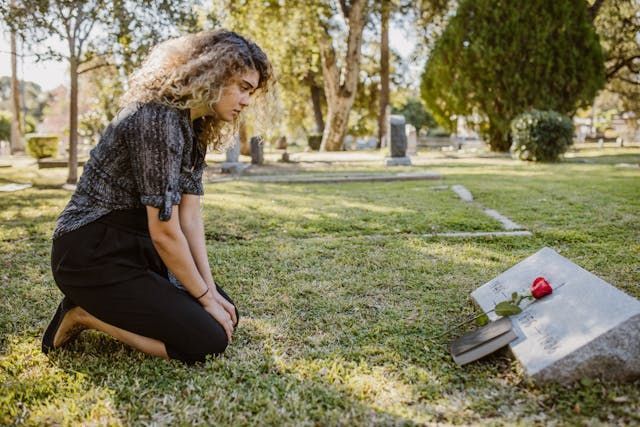The Physical Side of Grief
When we lose a loved one grief follows. This can create feelings of sadness, isolation, and loneliness. But emotional effects are not the only thing we experience. There are physical effects as well.

After cremation as part of the cremation services offered in Roanoke, VA, we begin to grieve in earnest for the loved one we have lost to death. There are many emotional manifestations of grief, including feeling sorrowful, feeling lonely, and feeling isolated.
However, mourning also has many physical effects on the body – some the byproduct of emotional upheaval – that can lead to health issues in the short and long term. However, we can work to counteract some of these with mindfulness of what’s happening, why it’s happening, and what we should do in response.
One of the immediate physical effects that we may feel is a disruption in sleep. Whether we are experiencing interrupted sleep or insomnia, sleep disruptions have a very negative effect on us.
When we don’t sleep well, we become sleep deprived. That can mean we’re sluggish during the day, less alert, and less able to focus and concentrate. It can also make us dangerous when we are driving or operating machinery (on a job, for example), because we may fall asleep or our response times are too slow to avoid causing accidents.
Good, uninterrupted sleep has positive effects on our emotional well-being, but it is also beneficial for the brain. Toxins accumulate in the brain throughout the day, and good sleep will sweep those toxins from the brain, which can ward off the long-term possibility of developing dementia.
If we were caring for your loved one through a terminal illness, it is likely that our sleep patterns were already disrupted, possibly for months or years. Although this can initially be hard to adjust to, our bodies will eventually conform to erratic sleep patterns, and these may persist after our loved one has died.
One of the ways to restore a regular sleep schedule is to prepare for sleep. A couple of hours before you want to go to sleep, start unwinding by dimming lights, turning off digital devices, and sitting down with relaxing music – or quiet – and reading or doing another activity that you find relaxing. Taking a warm shower just before bedtime can also help you to relax and go to sleep and stay asleep.
Another physical effect that grief can bring is dietary changes. When we’re stressed, a hormone known as cortisol gets released in large quantities. This hormone can influence the food choices we make. We may find that we have cravings for foods that are not healthy, but that temporarily can make us feel better.
Additionally, the stress of grief can bring on physical exhaustion, which may leave us with very little energy or desire to cook healthy meals. We may find that we rely on processed or fast food because it’s quick and easy and takes very little effort to acquire and eat.
However, eating an unhealthy diet can cause us to feel even more lethargic and to gain unwanted weight.
To counteract this physical effect, we can take a few simple steps to make sure we have healthy, ready-to-eat foods available when we get hungry. We need to keep a good variety of fresh fruits on hand to snack on and keep vegetables that can be eaten raw or thrown into a quick salad stocked in our kitchens. Nuts are also healthy in small quantities, so we should keep a few different kinds of ready-to-eat nuts, like walnuts, almonds, and cashews in our pantries.
We should also make sure to stay well-hydrated with water and to try to get at least 30 minutes of moderate exercise into our schedules each day.
For additional information on grief resources and cremation services in Roanoke, VA, our caring and knowledgeable staff at Lynch Conner-Bowman Funeral Home can assist you. You can visit our funeral home at 140 Floyd Ave., Rocky Mount, VA, 24151, or you can call us today at (540) 483-5533 or see our community events.











